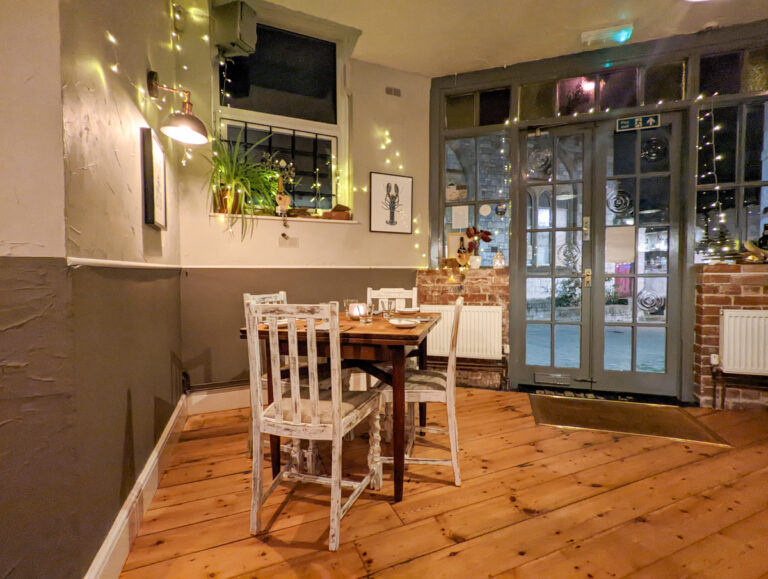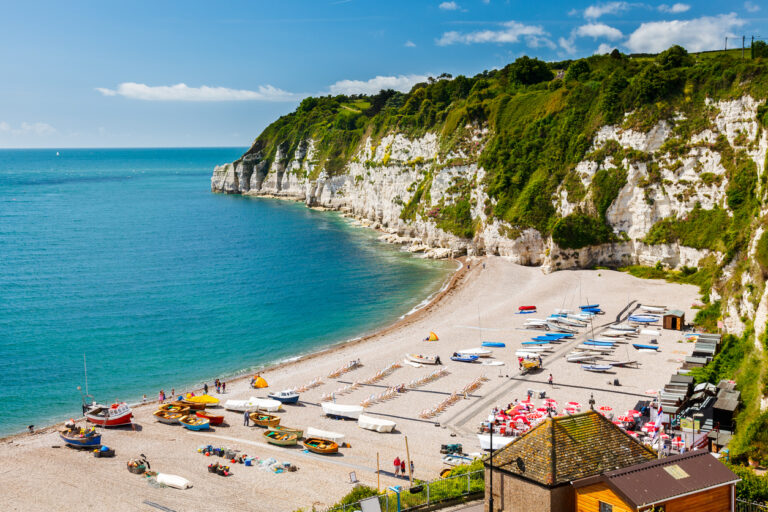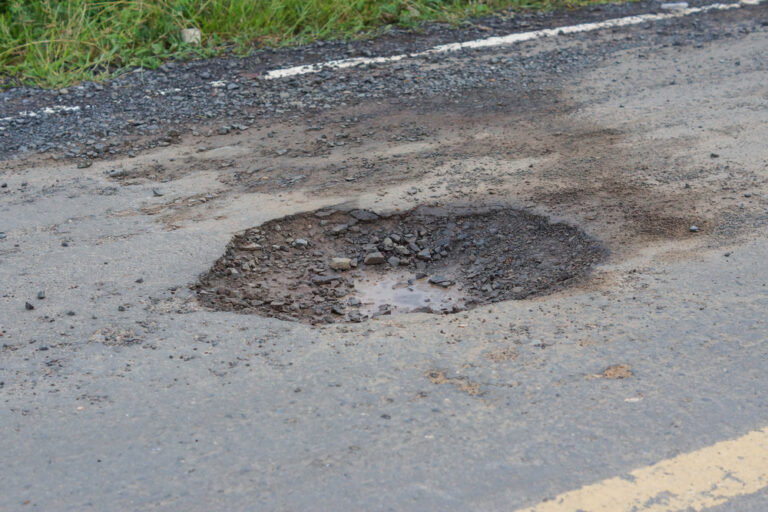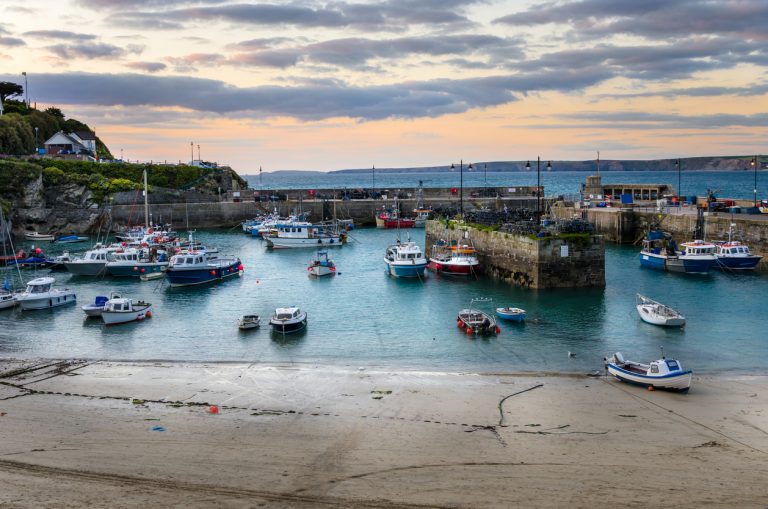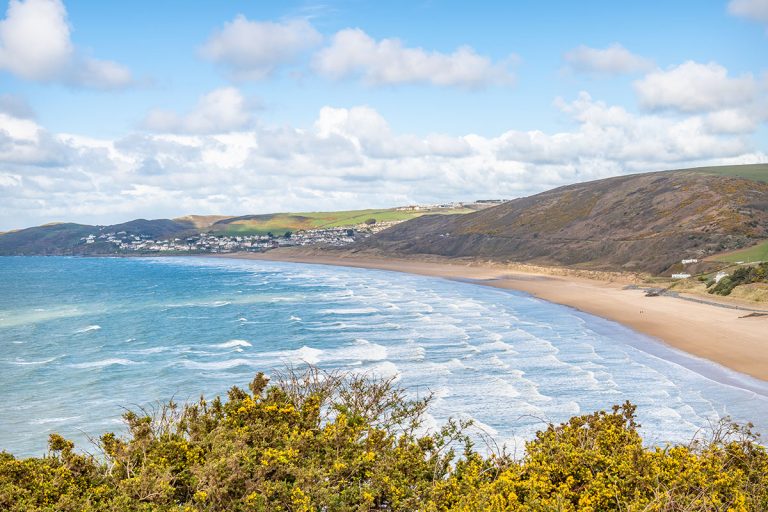How to get to Devon: tips from a local!
If you’re wondering how to get to Devon, you’ve come to the right place!
The county of Devon is located in the South West of England, bordering Cornwall to the west, Somerset to the north and Dorset to the east.
A rural place, with two rugged coastlines and two vast moors, it’s connected to the rest of the country by the M5 and the A303.
However, while it’s a fair distance from London and cities in the North and Midlands, the drive isn’t too long and there are train connections.
In fact, it’s a popular destination for weekend trips from the capital or places like Bristol and Birmingham.
From cities in the North of the country, it takes a little longer to get to Devon, but is generally made possible by connections through Bristol.
Whether you are travelling from London Victoria Coach Station or Heathrow Airport, Scotland or North Wales – if you’re wondering how to get to Devon, read on – this guide is for you!
How to Get to Devon by Car
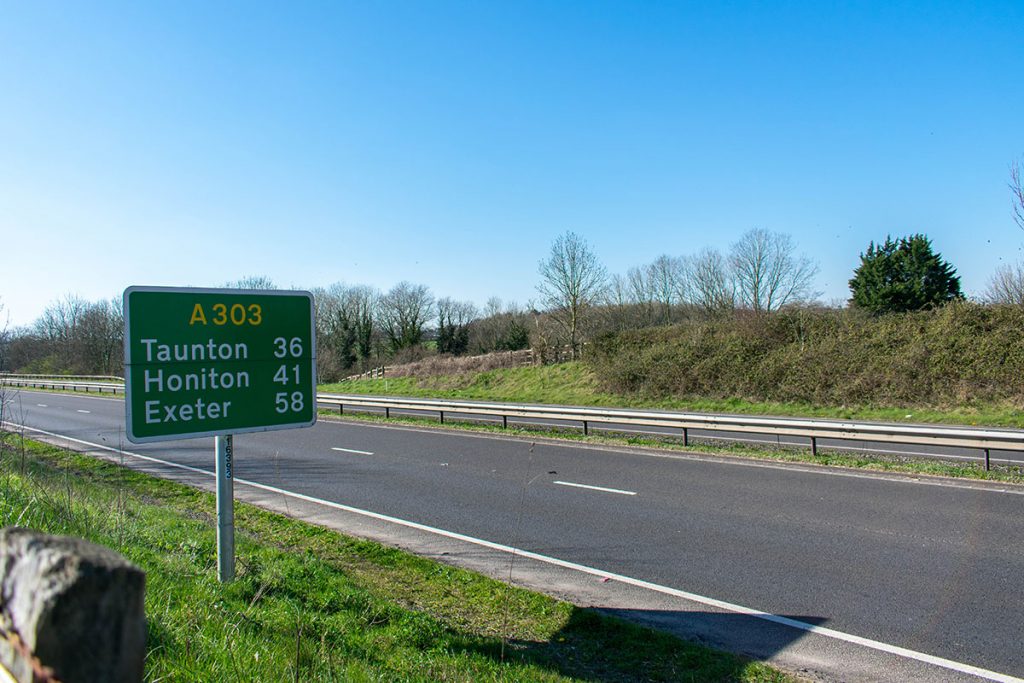
Unless you’re driving from Cornwall, you will probably enter Devon one of two ways – on the A303 or the M5.
The A303 connects to the M3, which in turn links to the M25 – so if you are driving from London or anywhere in the South East to South Devon, this will be the route for you.
Take the A303 to the A30 exit, and then if you’re going to East Devon, take one of the country roads off the road. Or, keep following the A30 or join the A38 to get to other destinations in Devon.
However, if you’re heading to North Devon’s beautiful coastline, the most direct way is to take the M25, M4 and then the M5.
If you are driving from the north, the midlands, or Wales, you are likely to join the M5 wherever nearest – it starts in Birmingham and goes through Bristol – and take that to either Bridgwater in Somerset (for North Devon) or where it ends in Exeter (for South Devon)
From the Bridgwater exit, take the A39 westwards to destinations like Lynmouth, Ilfracombe and Barnstaple.
From the end of the M5, join the A38, which connects Exeter to Plymouth and has junctions for South Devon destinations en route.
Or, if you’re heading to places like Okehampton or Tavistock, take the A30.
If you’re going to East Devon, you will need to follow the M5 to Junction 30 and then take A roads to your final destinations. For example, for Exmouth, take the M5 to Junction 30 and then join the A376.
If you are staying somewhere other than the big cities or towns, driving to Devon will most likely involve a few country roads.
If you aren’t used to them (I am now after three years of living here, but certainly wasn’t at first!), take it steady, don’t let other people pressure you into going too fast, but do be aware that lots of people will drive very quickly along these roads.
Drive times
- London to Exeter: about 3 hours
- London to Plymouth: about 4 hours
- Bristol to Exeter: about 1.5 hours
- Bristol to Plymouth: about 2.5 hours
- Birmingham to Exeter: about 2:40 hours
- Birmingham to Plymouth: about 3:40 hours
- Manchester to Exeter: about 4 hours
- Manchester to Plymouth: about 5 hours
- Newcastle to Exeter: about 6 hours
- Newcastle to Plymouth: about 7 hours
- Nottingham to Exeter: about 3.5 hours
- Nottingham to Plymouth: about 4.5 hours
Please note, these can vary wildly depending on the traffic situation, which in the UK, can be very very unpredictable.
How to get to Devon by train
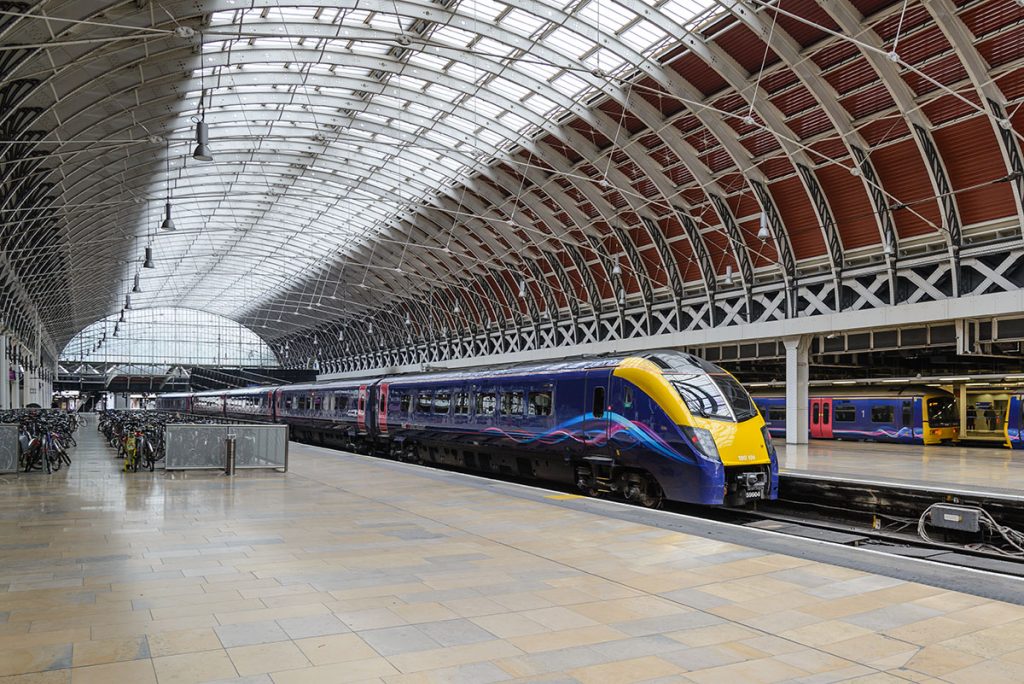
First, look at exactly where in Devon you are going.
Plymouth and Exeter are the biggest cities in the county – Plymouth has 235,000 inhabitants, followed by Exeter with a population of about 130,000.
Both of these cities have large stations that you can access from other parts of the country.
You might need to get a train to one of these cities and then another train to your destination – for example, to get to Exmouth, I would take a train to Exeter St Davids and then change.
Exeter St Davids is also connected to train services to towns in Torbay, Totness, Okehampton and Barnstaple.
Often, a ticket will cost the same amount for the extra journey, so it’s a good idea to buy a ticket covering the whole trip. (So, make sure you purchase a ticket for the Paddington to Exmouth route rather than the Paddington to Exeter St David’s Route).
Both Exeter St Davids and Plymouth Central are served by train services from London Waterloo, London Paddington and Bristol Temple Meads, and they continue into Cornwall.
There’s also a limited CrossCountry Service to Exeter and Plymouth from cities like Leeds, Birmingham, Edinburgh and Aberdeen (although this will take a while!).
But if you are travelling to Devon from a lot of northern cities, you will likely need to change elsewhere; usually either London or Bristol, or sometimes Birmingham, Cardiff or Southampton.
The London Paddington to Exeter rail line is typically a lot faster than the London Waterloo line, but Waterloo is more convenient if you are travelling from south London.
For cheap train tickets, make sure you book in advance rather than buying on the day at the ticket office.
Trainline often has some good deals on both child and adult tickets.
Also, if you are eligible (if you’re under 30, over 60, usually travel with one other person, have a disability or are a veteran) make sure that you purchase a Railcard.
You can save a third on every rail fare, and it pays off itself after a few journeys!
Click here to browse.
How to get to Devon by Coach
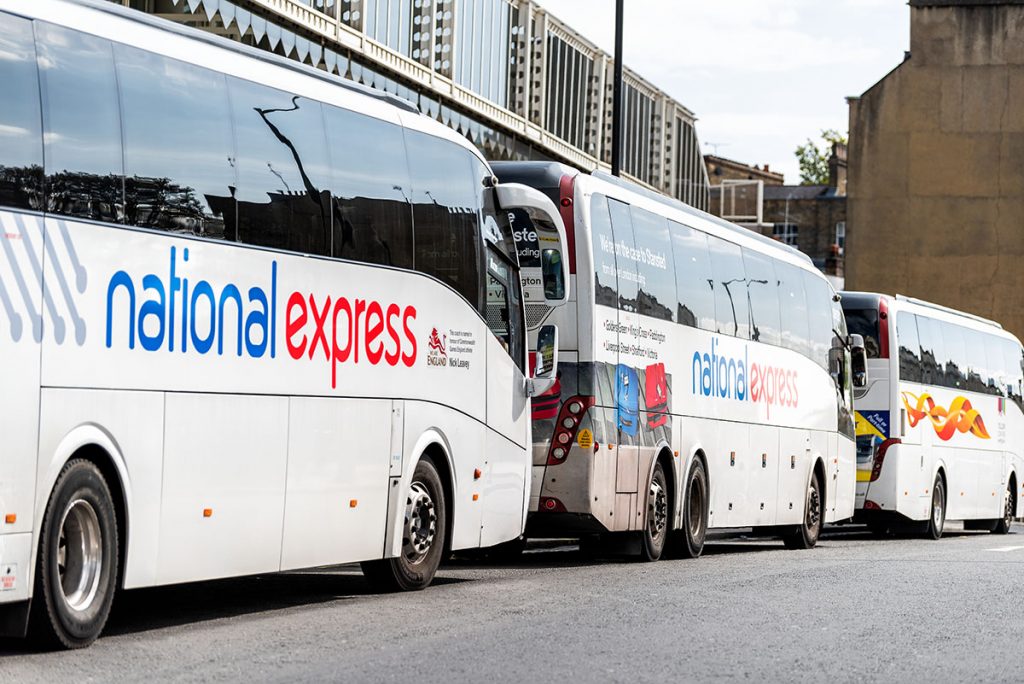
While I am a big fan of coach travel in the UK, mainly because it is so much cheaper than the trains (British trains are potentially the biggest travel rip-off in the world!), it’s not always ideal in Devon.
Coaches serve Exeter and Plymouth, but unless you are staying in either city, you will likely need to use the train or local bus services to complete your journey.
That being said, there are a few direct coach services that aren’t served by trains.
And, of course, coaches are about 10x cheaper, so it might be worth the hassle – just check the extra expense of getting to your destination first, while you are making your decision.
Make sure that you book advance tickets if you are planning on getting the coach, as you cannot usually book tickets at the office.
If you do want to opt for coaches, the Megabus serves Exeter and Plymouth from Bristol, London Victoria Coach Station and various towns and cities in Somerset and Dorset.
National Express has a few more options; you can get a coach from Birmingham, Oxford, London Heathrow, Bath and Chippenham – as well as London Victoria Coach Station and Bristol.
Coaches then go on to Plymouth Bus Station.
There’s also the South West Falcon service (run by Megabus) which connects Plymouth, Exeter and Cullompton with Bristol Airport and Bristol. You can pay for this coach on board the bus – advance booking is not necessary.
Should I Fly to Devon?
Exeter Airport serves UK cities, including London Heathrow Airport, Birmingham International Airport, and a handful of foreign destinations.
However, unless you are coming from abroad, I wouldn’t recommend flying to Exeter Airport, no matter how many changes there are on the trains.
It’s a lot of hassle going through the airports, and while Exeter Airport is close to the city centre, it’s not that close to other destinations in the county.
Plus, taking the train is a lot more eco-friendly – even if it takes longer!
The best connected international airports in the UK are in London – although Exeter International Airport goes to a few destinations, if you’re travelling to Devon internationally you will usually be better off flying into London or Bristol and connecting to Devon from there.
What is the quickest way to get to Devon?
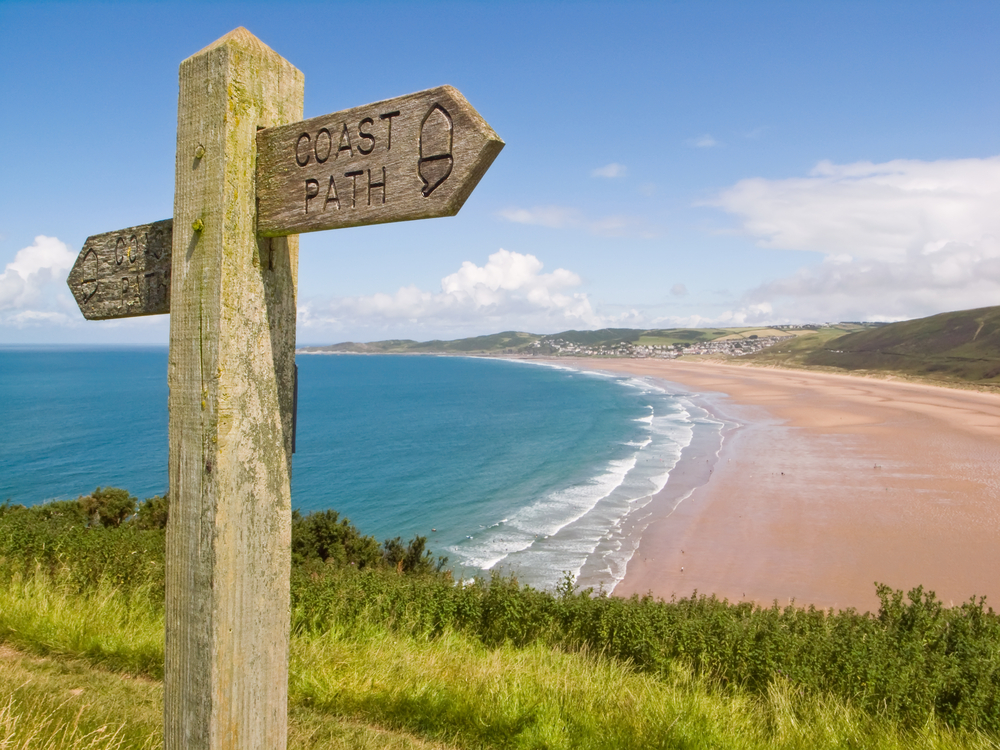
The quickest way to get to Exeter or Plymouth is the train from London Paddington.
This is a quick route with few stops along the way.
The quickest train to Exeter takes around 2 hours and 10 minutes, while to Plymouth, it’s just over three hours.
What is the cheapest way to get to Devon?
The cheapest way to get to Devon is to take a coach.
You can get a coach from London or Bristol to Exeter, where you can reach other locations in East Devon and North Devon, or Plymouth, where you can get to locations in South West and Central Devon.
Direct coaches also head to places like Totnes and Torbay.
How do I normally get to Devon?

I live in Exmouth in Devon (and part of the reason why I chose to move here is because it’s fairly well connected to the rest of the country!).
When I’m travelling from London, Bristol or the Midlands, I’ll usually try to take the train if there’s a feasible and affordable route.
I find that booking trains early helps keep prices down. I also have a railcard, and highly recommend checking to see if you’re eligible for one if planning on travelling by train – as you can save 30% off all journeys.
Click here to check out railcards!
From Exeter, I change to a half-hour train to Exmouth.
I sometimes drive from London, taking the M25, M3 and A303 – this takes about 3 hours 30 with no stops on a good run.
From the East Midlands, it’s also about 3 hours 30, connecting to the M5 then driving straight south.
I take the coach if I’m travelling from Heathrow Airport (it’s the best way to get to this airport), and that takes about 4 hours to Exeter. Then I change to the 57 bus or a train from Exeter Central.
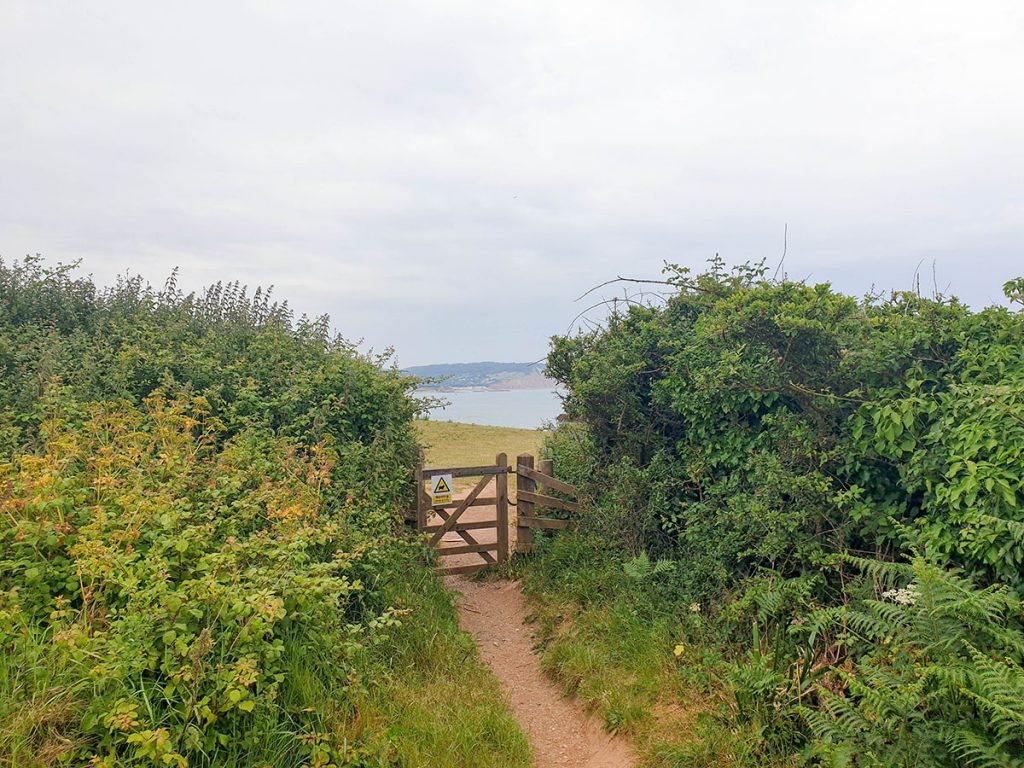
Tips for getting to Devon
- Check for cancellations: When you have booked your tickets, keep an eye on the website or social media accounts of the company you have booked with for travel advice. Cancellations are uncommon, but they do happen, and it’s best to know in advance!
- Know your delay repay rights: If your GWR or South Western Railway train is delayed by more than 15 minutes, you are eligible for a 25% refund. If it’s been delayed by 30 minutes or more, you can get a 50% refund and if it’s by an hour or more you can get 100% back. CrossCountry Rail has a similar scheme, but they don’t refund passengers who have had an under 30 minute delay.
- Speak to your accommodation: If you are going somewhere that doesn’t have good public transport links (there are plenty of them in Devon!), contact your accommodation host who will advise you on the best option. They may even offer to pick you up from your arrival station or advise you about bus services.
- Use Skyscanner: If you are travelling from abroad or do want to fly, and would like to search for flights, I recommend finding the cheapest deals on Skyscanner.
- Think about getting around Devon: If you want an action-packed adventure like hiking on Dartmoor, you might need to drive.
Where to go in Devon if you are relying on public transport
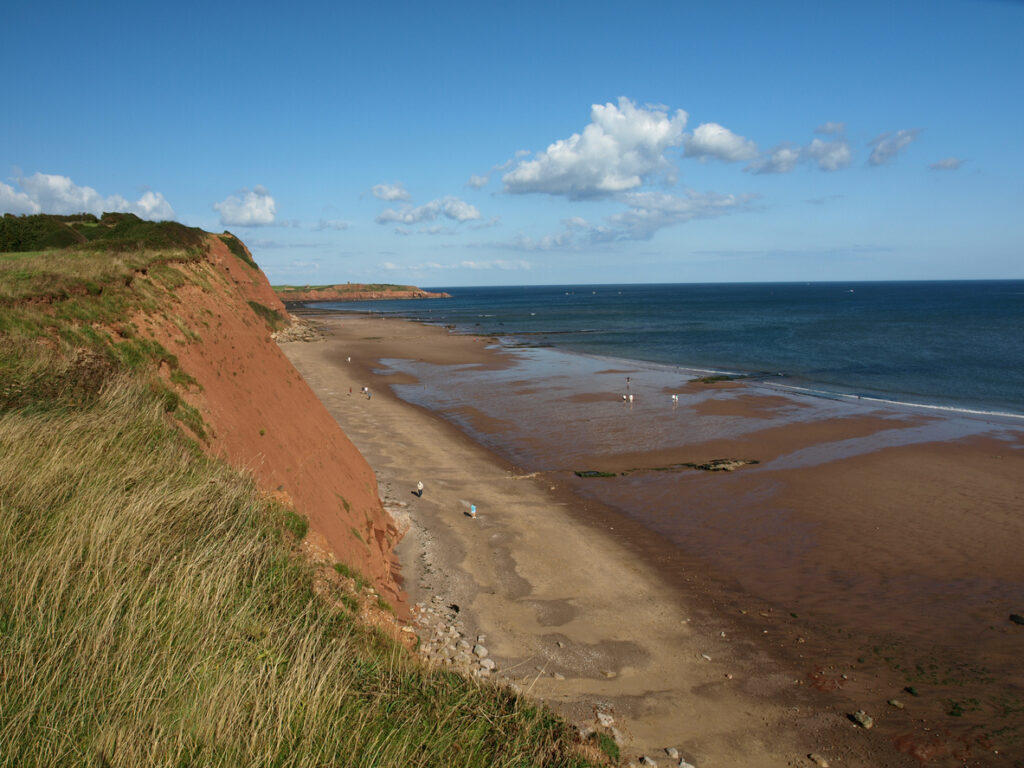
- Exmouth: I always recommend Exmouth which has great access to nature – it’s right on the end of the Jurassic Coast and you can walk to moorland – and it’s a quick train ride from Exeter. If you want somewhere to stay, check out Haven Devon Cliffs. If you want to explore more of East Devon, you can take a bus from Exmouth to other destinations.
- Torbay: You can also take a train to Torquay or Paignton from Exeter – both have popular stations. Torbay’s not my favourite area of the country, but there are a lot of attractions (most of which are family-friendly) here.
- North Devon: North Devon is an option – although it’s harder to get around with public transport. There is a train service from Exeter to Barnstaple, and there are lots of nature trails around Barnstaple, like the Tarka Trail. You can also take a bus to other beach destinations like Westward Ho! and Woolacombe.
- Plymouth and Exeter: The city centres of Plymouth and Exeter also have plenty to offer the traveller! Exeter also has lots of nature trails like the Exe Estuary, so you can enjoy a bit of nature while having a city break.
- Beach towns near Plymouth: From Plymouth, you can take public transport to destinations like Salcombe and other beaches around Plymouth.
Are you ready to visit Devon?
I hope that this post has helped you plan your trip to Devon and work out the best way for you to get to this beautiful county!
Don’t forget to check out my Devon archives for more information about visiting my home county, and feel free to reach out on Instagram if you have any questions!

